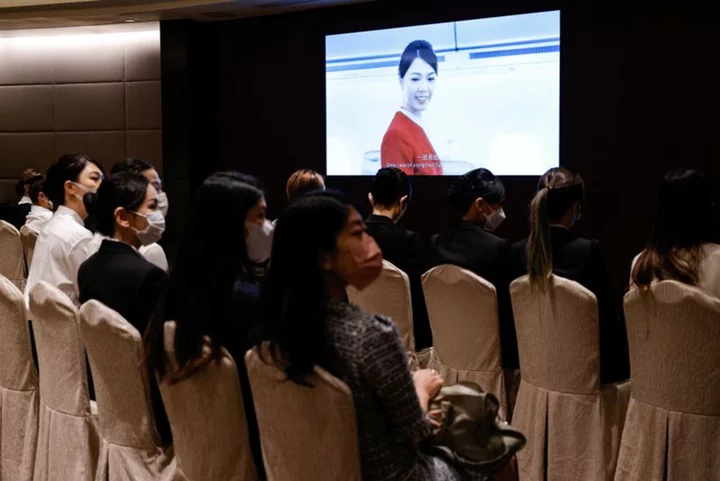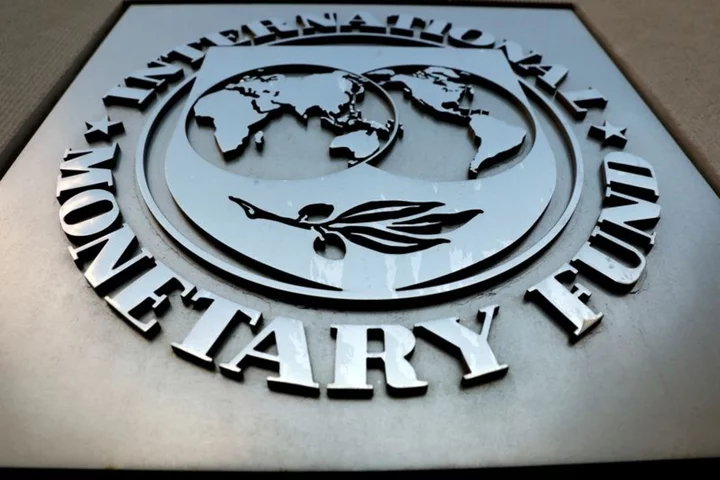By Diane Bartz and Anirban Sen
WASHINGTON (Reuters) -U.S. antitrust regulators published guidelines on Wednesday on the kinds of mergers and acquisitions they object to, reaffirming the skepticism with which President Joe Biden's administration has approached many deals, especially in the technology sector.
The U.S. Justice Department and Federal Trade Commission (FTC) have mounted an unprecedented number of legal challenges to mergers since Biden came to office in 2021.
Their success in court has been mixed, with two losses recorded just last week in their attempts to scupper Microsoft Corp's $69 billion deal to buy video game maker Activision Blizzard Inc and to undo a merger in the sugar industry.
During the Biden administration, the FTC also lost a bid to stop Meta from buying a virtual reality content maker and another in cancer detection. The Justice Department lost a merger in the insurance industry but won an effort to stop a book publisher merger.
Several challenges are scheduled to go before judges in the next few months, including the Justice Department's fight against JetBlue Airways Corp's purchase of Spirit Airlines Inc.
The 51 pages of guidelines by the Justice Department and Federal Trade Commission described, without naming them, deals such as Amazon.com's purchase of video doorbell Ring in 2018, and said the antitrust agencies should scrutinize them.
The concern is that Ring's competitors are sold on Amazon.com, giving Amazon the incentive to favor Ring over competitors.
The guidelines also said a transaction should not eliminate a potential entrant in a concentrated market or create a situation in which a firm buys a company that provides inputs for the acquirer's competitors.
Deal advisers said companies had already braced for a tough antitrust regime under Biden and some had been emboldened by the regulators' recent court losses.
"The courts are the ultimate deciders, and the courts are guided by precedent and case law," said Kenneth Schwartz, an antitrust partner at Skadden, Arps, Slate, Meagher & Flom LLP.
Global deal volumes in the technology sector have dropped by more than half so far this year, according to data from LSEG Deals Intelligence.
Tougher antitrust enforcement in the sector has been a contributing factor to deal appetite waning, according to Fiona Schaeffer, an antitrust partner with law firm Milbank LLP. She argued that if the guidelines are adopted as proposed they will not necessarily be accepted by judges hearing merger challenges because they do not reflect recent court decisions on contested mergers.
"The (regulators' guidelines) do provide more transparency but that transparency also reveals some concerns that they are quite hostile to consolidation. Big is bad," she said.
Senator Elizabeth Warren, a Democrat who has pushed hard for tougher antitrust enforcement, called the guidelines a turnaround "after more than 40 years of lax antitrust enforcement."
She and others defended the guidelines, with Warren saying they were "rooted in the laws passed by Congress, aligned with court precedent, and provide a much-needed update to counter the real harms posed by corporate monopolies."
The new antitrust guidelines also reflect the White House's focus on labor issues. "Where a merger between employers may substantially lessen competition for workers, that reduction in labor market competition may lower wages or slow wage growth, worsen benefits or working conditions," the guidelines say.
The guidelines replace those last issued in 2010 on companies buying competitors and 2020 guidelines on companies merging with suppliers. The new guidelines will be open for comment for 60 days before they are finalized.
(Reporting by Diane Bartz; Editing by Richard Chang, Chizu Nomiyama and Daniel Wallis)









